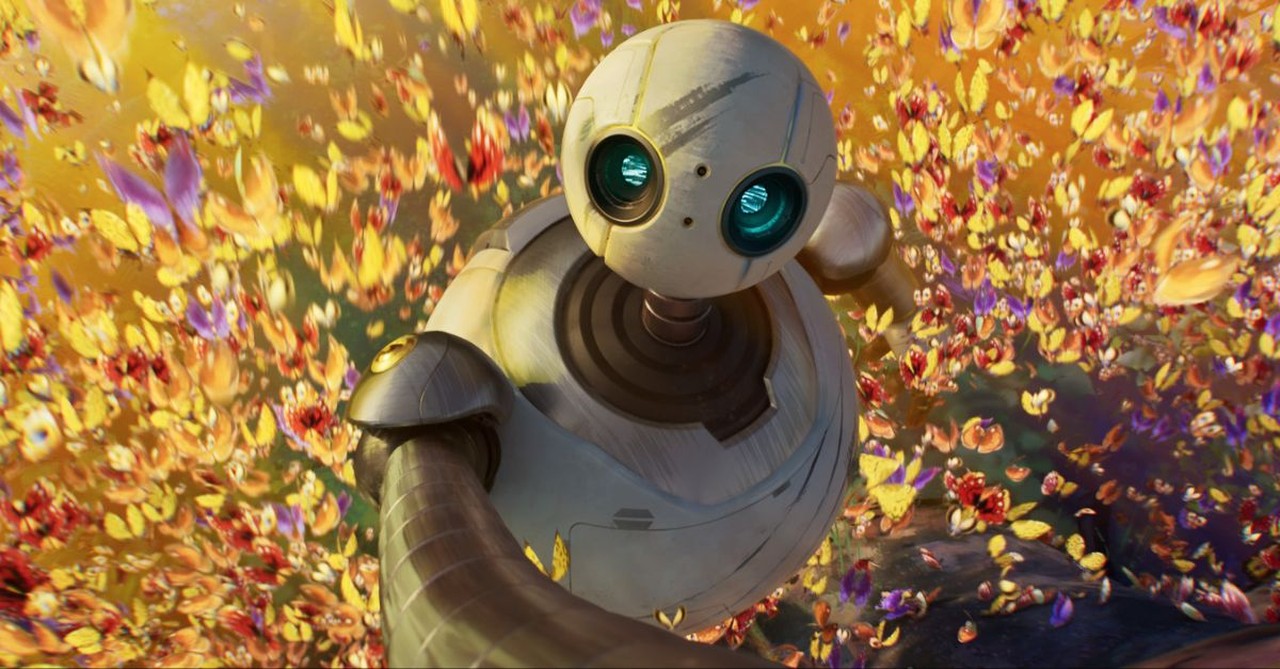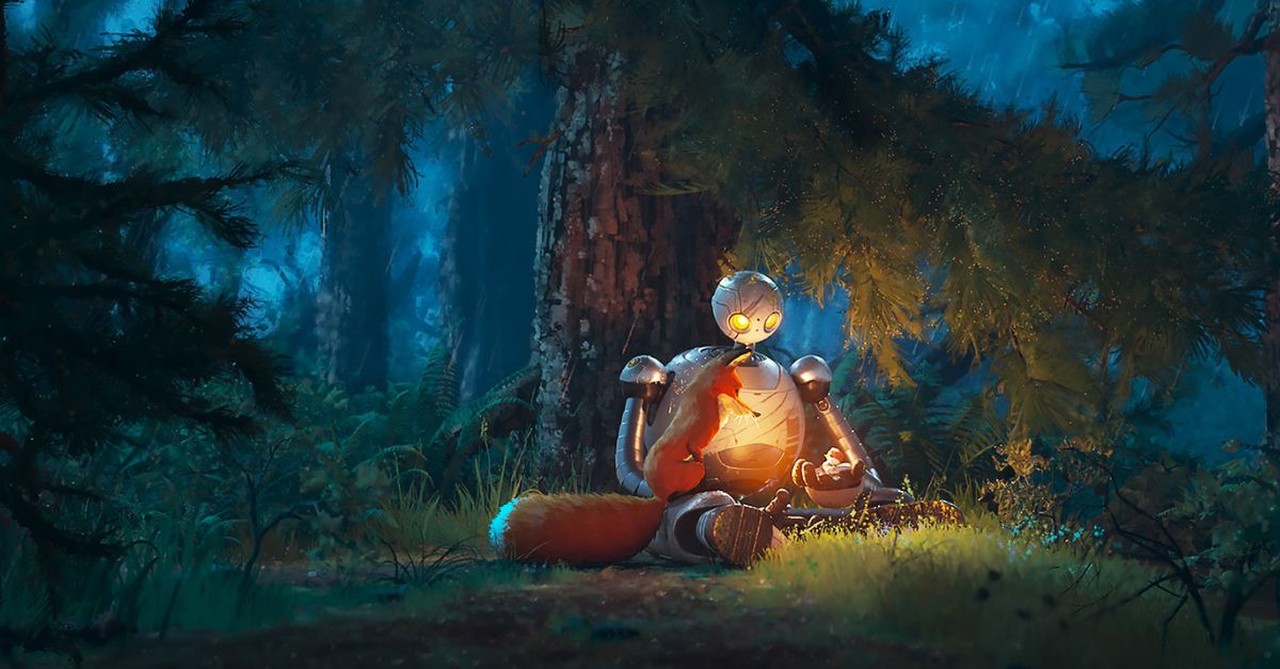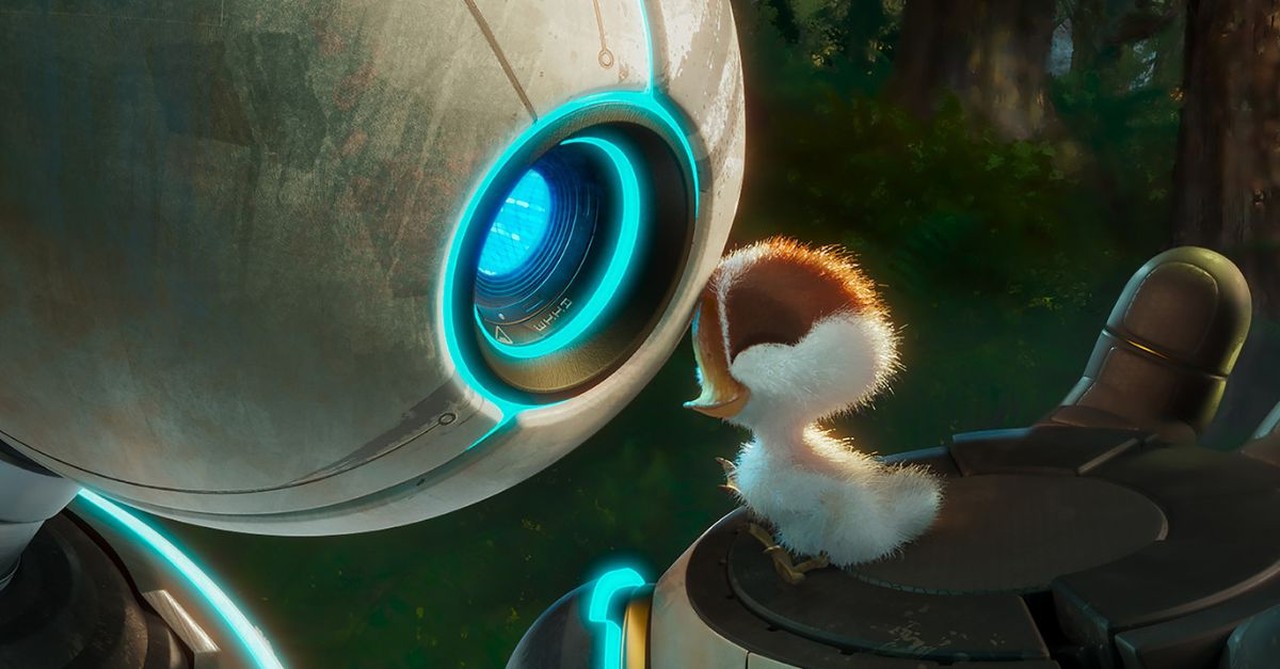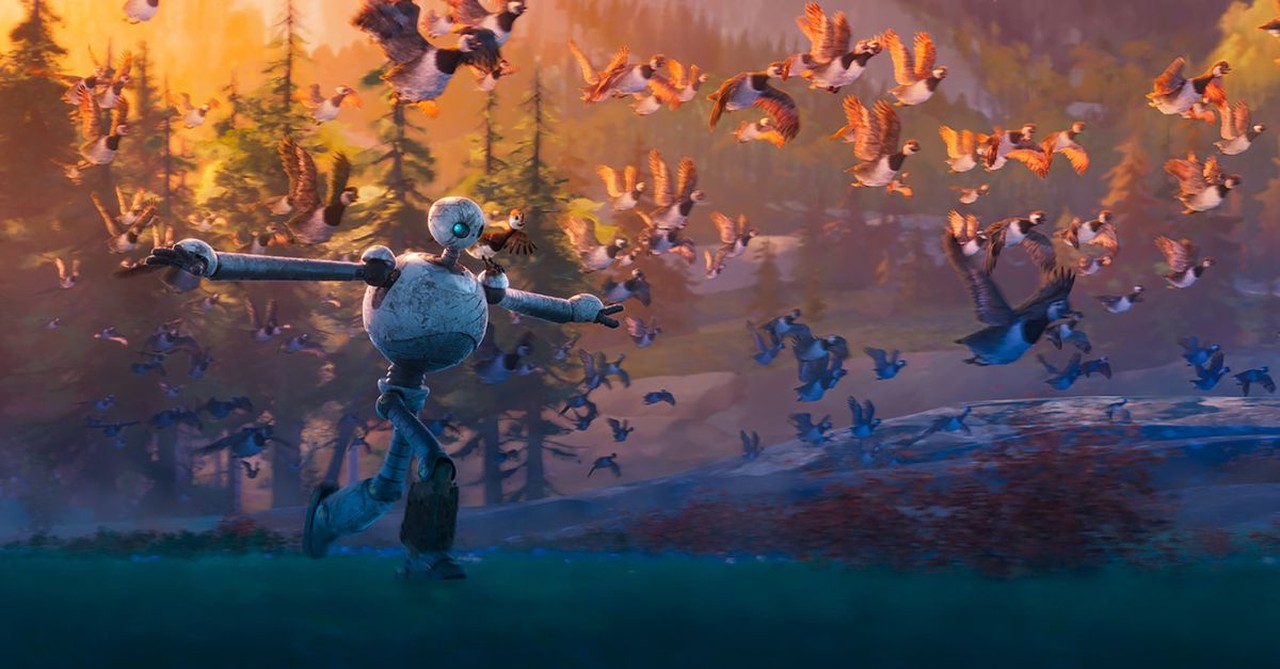3 Reasons All Families Will Love The Wild Robot

Roz is an intelligent robot who survived a shipwreck and is now stuck on an island far, far away from the "civilized world" where she was meant to operate.
"Did anyone order me?" she asks.
The beavers, though, are too busy building their dam to listen. The bears are preparing for the winter season. The deer are quietly grazing.
Roz's manufacturer, Universal Dynamics, created her to solve tasks and assist with daily household chores. Out in the wild, Roz's assistance isn't needed.
Then again, maybe Roz can adapt.
She encounters a broken nest and an endangered egg, which she incubates until it hatches. The bird, a young goose, naturally bonds to Roz, believing she is its mother.
Suddenly, Roz has a task. She adopts the gosling -- a male -- and names it Brightbill. She feeds him. She cares for him.
But …can Roz teach him to fly? And …how will Brightbill react when other goslings tell him that Roz isn't his "real" mom?
The new DreamWorks film The Wild Robot (PG) follows the story of Roz, Brightbill, and a fox named Fink, who helps them both.
Here are three reasons parents will love it.
Photo Credit: ©Dream Works
1. It Spotlights the Family

1. It Spotlights the Family
SLIDE 1 OF 3
The film is based on a series of bestselling children's books by author and illustrator Peter Brown that tells the story of a robot who must quickly adapt to the natural world, learning the ways of the wilderness and developing crucial skills to survive. Along the way, she forms unexpected and heartwarming bonds with the island's animals and discovers profound lessons about family and friendship. The books are The Wild Robot (2016), The Wild Robot Escapes (2020) and The Wild Robot Protects (2023).
In the film, the plot turns when Roz (Lupita Nyong'o) learns she has the capacity to analyze animal languages, which in turn allows her to communicate. (It also gives us the ability to hear them talk.)
Although a robot, she has an uncanny ability to exhibit empathy. She protects the egg from a hungry fox, Fink (Pedro Pascal), but then displays compassion and forgiveness when he is quilled by a porcupine. She assumes her task is complete after it hatches -- she's ready to return to her factory -- but then has a change of heart when she realizes Brightbill can neither eat nor fly.
Roz knows nothing of human love yet shows care and devotion -- in a comical, robotic way.
Hearing Brightbill call her "mama," Roz replies to him in a flat, mechanical voice, "I will not leave until I have completed this task—which has delayed me, damaged me, and violated my protocols, potentially voiding my warranty."
Roz didn't land on the island expecting to be a mother -- and she definitely didn't have any experience, either. But once she found herself in that role, she adapted. She sacrificed. She learned as she went, one step at a time, one day at a time. No doubt, many parents will relate.
Photo Credit: ©Dream Works
2. It Celebrates Adoption

2. It Celebrates Adoption
SLIDE 2 OF 3
Any story about a robot raising a gosling naturally touches on themes of adoption. However, The Wild Robot brings these ideas to the forefront, discussing them openly and directly.
"You're not my mom," Brightbill tells Roz halfway through the film when he encounters a flock of geese and compares them to the robot who raised him.
Brightbill faces bullying because of his unusual upbringing and longs for the sense of "normal" he believes his mother, brothers, and sisters, who died in an accident, would have provided.
"They were my chance to swim, to fly. What even am I?" he asks.
Though her heart is broken, Roz remains steadfast in her commitment to Brightbill. As best she can, she teaches him to fly and prepares him to migrate. She also discovers that not every challenge can be solved through careful planning—sometimes, it takes patience, endurance, and sacrifice. Most of all, it takes love.
"How do you know if you love something, someone?" Roz asks Fink.
"If you do, you should probably tell them," Fink responds.
Eventually, Brightbill's heart, too, changes. He sees Roz not as a cold, mechanical robot but as the loving mother who did her best to raise him.
The Wild Robot is a poignant parable about family, reminding us that parenting is a worthwhile journey, patience is essential, and love can transcend biological bonds.
Photo Credit: ©Dream Works
3. It Urges Balance with Technology

3. It Urges Balance with Technology
SLIDE 3 OF 3
The Universal Dynamics ad for their new robots is lofty, to say the least. One ROZZUM robot promises "for every five humans means a 40 percent increase in leisure time and happiness."
If it were only that simple. Too often, technology does not improve our lives but rather creates new, unforeseen problems. We become dependent. We push real-world relationships to the background. We grow stressed.
Thankfully, the film offers a message parents can embrace.
Toward the end of the film, we watch as a mother possum orders her possum kids to turn off the projector. "You watch that too much," she says, reminding them it's time for their nightly story. They cheer.
Director Chris Sanders said the film encourages viewers to find a healthy balance between the use of technology and the rest of their lives. The goal, he said, is to let technology "assist your life but don't let it direct you," he told Crosswalk.
The Wild Robot gives viewers a plot that captivates and a message that aims directly at your heart. It's kid-friendly, too, with no coarse language or sexuality and only a handful of thematic elements involving adoption and the loss of Brightbill's family.
It may be the best-animated movie of the year.
Rated PG for action/peril and thematic elements.
Entertainment rating: 5 out of 5 stars.
Family-friendly rating: 4.5 out of 5 stars.
Photo Credit: ©Dream Works
Michael Foust has covered the intersection of faith and news for 20 years. His stories have appeared in Baptist Press, Christianity Today, The Christian Post, the Leaf-Chronicle, the Toronto Star and the Knoxville News-Sentinel.
Listen to Michael's Podcast! He is the host of Crosswalk Talk, a podcast where he talks with Christian movie stars, musicians, directors, and more. Hear how famous Christian figures keep their faith a priority in Hollywood and discover the best Christian movies, books, television, and other entertainment. You can find Crosswalk Talk on LifeAudio.com, or subscribe on Apple or Spotify so you never miss an interview that will be sure to encourage your faith.
Originally published September 26, 2024.









